“Acting is the best job in the world”
The Boar remembers Bob Hoskins, a greatly loved and talented actor, who, after battling pneumonia, passed away at the age of 71 on Tuesday 29th of April. Hoskins rose to prominence after winning a BAFTA award and being nominated for an Oscar in 1987 after starring in Mona Lisa, in which he acted alongside Sir Michael Caine and Robbie Coltrane. However, he was best known for his roles in The Long Good Friday (1980) and Who Framed Roger Rabbit (1988).
The writers of Boar Film have teamed up to write about their most memorable Hoskins’ roles.
Harold Shand in The Long Good Friday (1980)
Harold Shand stands aboard a luxury yacht as it gently passes by the London Docklands, an area the wannabe legitimate businessman is hoping to re-develop. He boldly claims, “Our country isn’t an island anymore. We’re a leading European state.” With that, the Yuppie was born. And so was an icon. John Mackenzie’s 1980 crime classic is arguably the definitive Bob Hoskins performance. It was the film that established the ferocity of Hoskins as a character actor. Yet at the same time, Hoskins manages to craft a character that is deserving of our affection, despite his sadistic and brutal nature. The film itself stands as one of the finest examples of the British Crime genre, but it is Hoskins performance which makes the film truly memorable. Shand is the epitome of the self-made man, a boy from the East End who has worked his way to significant power and influence through questionable means and methods. He is such a wonderfully developed character, and much of the credit has to be assigned to Hoskins who is at once utterly captivating, funny, and terrifying in equal measure. It is this film that demonstrates exactly why Hoskins is a talent Britain can be proud of, and why he is one that we will sorely miss.
Andrew Gaudion
Spoor in Brazil (1985)
Bob Hoskins certainly isn’t the star of Brazil, or even the biggest name in the cast, but the somewhat unusual choice to cast him as a despondent engineer turned brutal police state enforcer allows the true horror of the films message to be realised. Essentially cast as the opposite to DeNiro’s Tuttle, the rebellion leading plumber, Hoskins is introduced at first as a man who simply needs to much paperwork done to be able to help our hero, a feeling we are all too familiar with of getting what we want done being blocked by the sheer volume of bureaucracy against it. Later in the film, Hoskins’ character takes a dark turn as through a combination of bad luck and sheer spite, he leaves Jonathan Price’s Sam without a home, with too much paperwork now being what prevents Sam from stopping this from happening. Here the film’s terror is realised as we see the totalitarian dystopia run not through brutal efficiency, but middle managers and forms. Without giving away too much, Hoskins’ characters eventual demise is one of the most wince-inducing in sci-fi without a drop of blood on sceen, a grotesque end form a grotesque satire.
Patrick Gill
George in Mona Lisa (1986)

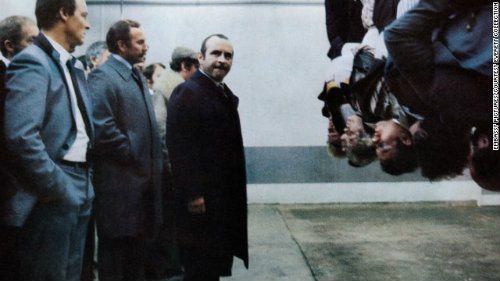
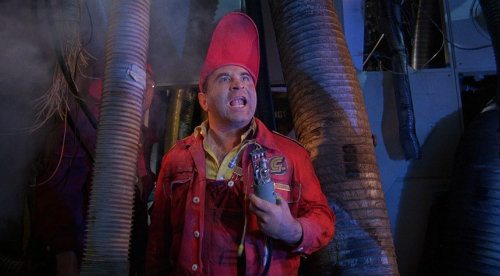
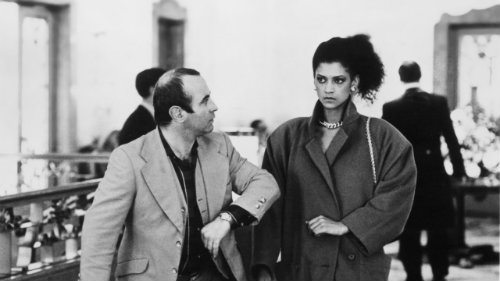
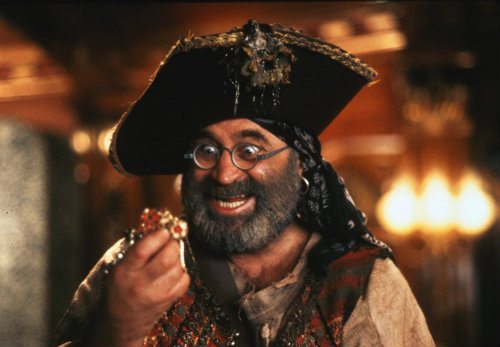
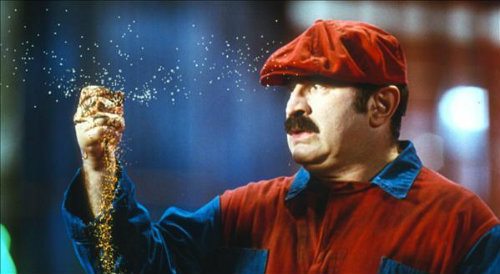
Comments